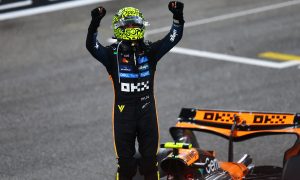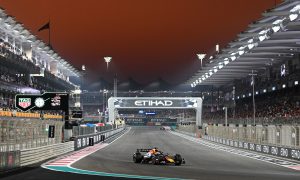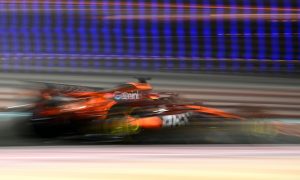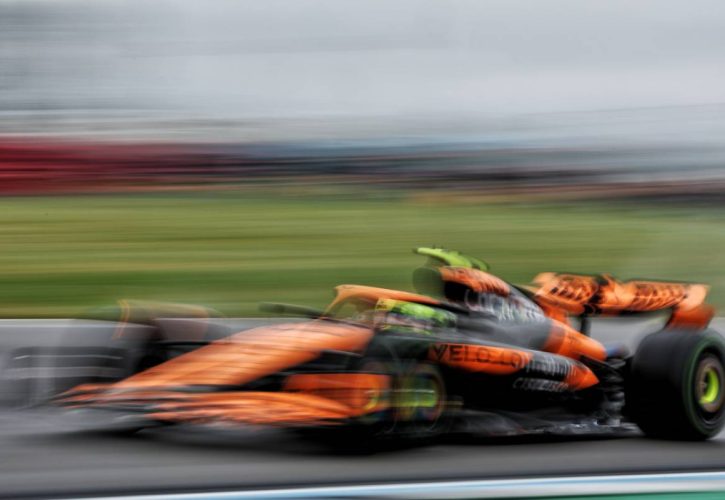
Silverstone has undergone numerous transformations throughout its history, but its soul remains the same: a high-speed titan.
Iconic corners like Maggotts, Becketts, and Abbey have stood the test of time, challenging even the most skilled drivers with their relentless G-forces and technical demands.
Silverstone boasts several long straights, such as Hangar Straight, where higher top speed is a valuable asset, but it’s just one piece of the puzzle.
A low-downforce set-up is a pre-requisite, at least in dry conditions, but as usual in these modern times, it’s all about balance and aero efficiency, or how much drag is created for a given level of downforce
In qualifying on Saturday, Oscar Piastri’s McLaren was the fastest car down Hangar Straight, and by a wide margin – not only over the second fastest car but also over his own teammate Lando Norris.
This suggests that the performance was an outlier and perhaps linked to specific circumstances such a massive slipstream that put the Aussie in a vacuum on a particular lap.
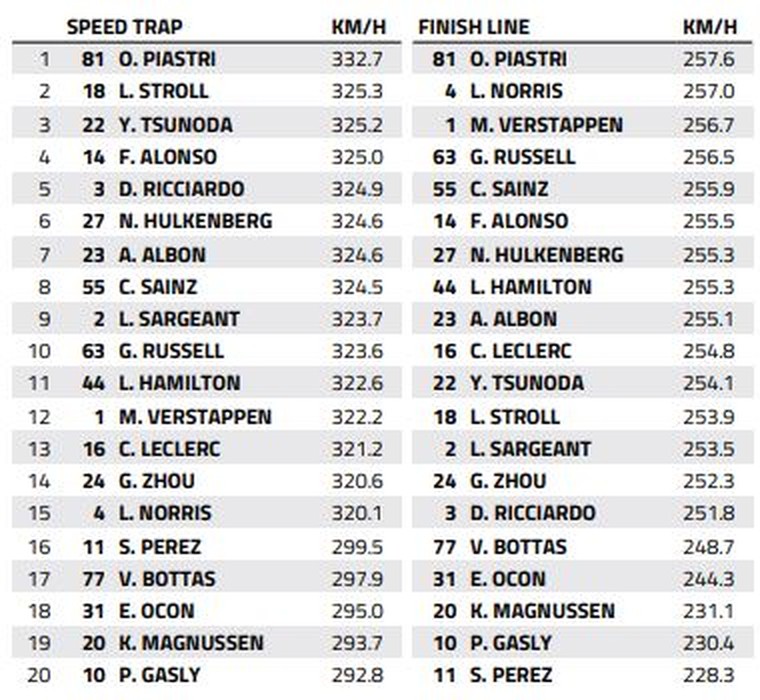
Mercedes pacesetters George Russell and Lewis Hamilton were right in the middle of the pack of the speed trap readings, along with Red Bull’s Max Verstappen but a few mile per hour ahead of Norris.
So where did the silver arrows gain an edge over their rivals in Q3?
Definitely in the third sector. Russell was fastest in S2, but both Mercedes’ cars were blindingly fast in the final sector that runs from Hangar Straight through Stowe, Vale and Club.
But digging into the details, Norris’ was only seventh fastest through S1 and boasted a relatively subdued top speed in this stretch, which suggests that the McLaren is carrying more drag than its rivals – something consistent with its use this weekend of a high downforce beam wing on its MCL38.
It’s worth noting that Norris abandoned his final flyer in Q3 after running wide out of Chapel. But McLaren’s greater downforce and more race-based configuration might pay big dividends this afternoon, especially in the event of adverse weather.
As for Verstappen, a new floor on his RB20 will bring the Dutchman back into play in a race that could prove to be a strategy chess match if the rain wreaks havoc on proceedings.
Otherwise, if it’s dry, then a one-stop is quickest on paper, with all three compounds being viable.
Keep up to date with all the F1 news via Facebook and Twitter




